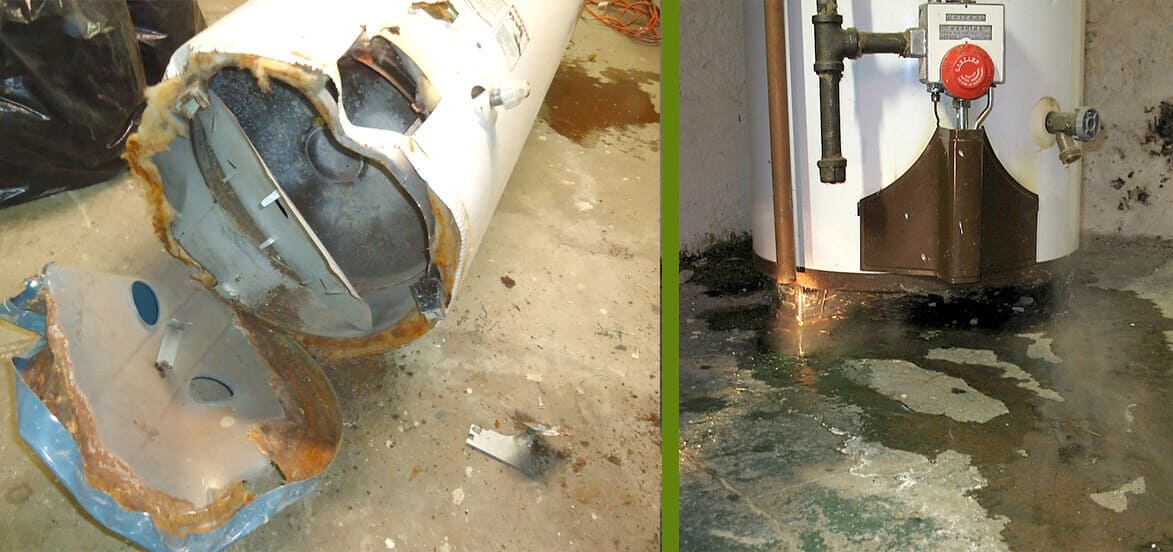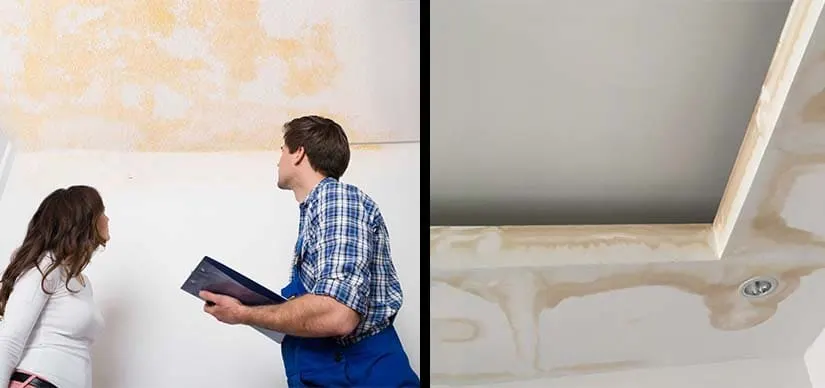9 Water Heater Failure Signs You Should Never Ignore
Views : 718

What Makes a Hot Water Heater fail?
Before delving into the warning indications that your water heater is giving up, it’s a good idea to understand the components inside your device. A typical water heater comprises a tank of water that is enclosed by protective linings.
A conduit runs through the center, housing the burners that heat the water. They can be set differently depending on whether they are powered by electricity or gas. An anode rod draws corrosive particles, extending the unit’s life.
Water heaters generally have a lifespan of 10 to 15 years. Also, several reasons lead to the failure of a water heater. Anode rods deteriorate with time.
Metal tanks have the potential to corrode or leak. Heating elements fail or cease to function. At times, you can replace the component.
However, if your water heater continues to fail, you may be better off replacing the entire unit. You should call a professional water heater replacement company in Los Angeles, especially if your existing unit has been in operation for ten years or more.
Is Your Water Heater Showing These Signs Of Failure?
Knowing how to detect whether your water heater is on its last legs will save you money and time. “But how can I tell if my water heater is broken?” you may be wondering. You may be able to avert the worst by paying attention to the following typical indicators that your water heater is about to fail.
1. Less Warm Water:
The most typical symptom of a failed water heater is a lack of hot water when you need it. You have a problem if your shower only gives you lukewarm water or if it takes a long time to deliver hot water to your taps.
Mineral deposits in water separate and settle out at the bottom of the tank while water is heated in the storage tank (through a gas or electrical source). These deposits continue to accumulate, ultimately forming a barrier between the water and the burner.
As a result, less heat enters the water, making your showers cooler. If you ignore these warning signals, sediment will continue to accumulate, putting strain on your water heater’s heating element. It will eventually fail, producing leaks or ceasing to function entirely.
What needs to happen: You may extend the life of your water heater by having it flushed regularly by a plumbing specialist.
2. Water Tank Leaks:
Leaks indicate that your water heater is failing. Water may be leaking from the tank or accumulating beneath the device. You may also see water dripping from pipes.
It’s conceivable that the valves aren’t completely closed, or the connections are loose. These components may require tightening or replacement, both of which are simple solutions.
However, if the tank leaks, you will have no alternative except to replace your water heater. What must take place: Turn off the water supply at your water shut-off valve if the tank leak is severe. While this is only a temporary solution, it will avoid a basement flood (and not to mention gallons of wasted water).
If the leak is coming from the tank rather than the valve, the tank’s inner lining has most likely rusted due to silt accumulation, age, or negligence.
In such a case, you need to go for a water heater replacement. If the leak is coming from the TPR valve, you must contact a professional plumber immediately to prevent your tank from overheating. The good news is that most likely, you will need to repair the valve part and not the complete water tank.
3. Temperature and Pressure Relief Valve (TPR) Failure:
If the TPR valve is leaking, you should replace your appliance as soon as feasible. When the pressure or temperature in your machine becomes exceptionally high, the valve releases the pressure building to prevent an explosion.
Corrosion and rust buildup might cause the valve to stop operating. If a TPR valve fails, it can cause significant harm if not repaired promptly.
In fact, it has the potential to cause the water to boil over its boiling point, converting to steam and causing the water tank to explode.
This will result in both property damage and personal harm. To remedy this, repeatedly lift and lower the lever to test the valve. The test lever will detach from the connected brass stem, allowing hot water to exit the pipe.
If no water is coming out of the pipe, you should replace the PR valve. It is essential to note that you need to call a professional once a year to examine the TPR valve and ensure good operation.
How to Fix It: To test the TPR valve, raise and lower the test lever multiple times until the brass stem to which the valve is attached is lifted. Hot water should be gushing out of the drain pipe’s end.
If there is no water flowing through the pipe or only a trickle, contact a plumber to repair the valve of the water heater and check that debris or equipment malfunction is not causing the problem.
Temperature and pressure relief valves should be professionally inspected at least once a year to ensure optimal operation. Call a plumber right once if you discover a leak or if the valve does not respond to your test.
4. Cloudy Water:
Does the water in your home appear cloudy? Do you notice a metallic odor or taste in your tap water? Both murky water and funky-smelling water indicate a faulty water heater.
Mineral deposits migrate from the water heater, clouding the hot water that flows through your faucets. These deposits may emit a metallic odor and even flavor. These mineral deposits can block the parts that control the flow of water in faucets.
Furthermore, a murky orange or reddish color in water might indicate that your water heater tank or home pipes are rusted.
How to Fix It: If hazy or rusty water bothers you, you can filter it for a temporary solution. While it may not appear pleasant, the EPA states that rust in water poses no immediate health risks. However, if rust has infiltrated your tank or pipes, the only option is to replace them. Proactively replace tanks or pipelines before corrosion creates a leak.
5. Rumbling Noise:
Another typical cause of water heater failure is rumbling noises. It’s time to call a professional for water heater repair in Los Angeles if your water heater is making popping, cracking, or rumbling noises.
When it comes to the water heater, sounds, hard water, and mineral buildup are partly to blame. Minerals creating a coating on the surface of the water heater generate unmistakable popping sounds. Pockets of air in the sediment layer are boiling together with the water in your tank, causing the sound.
How to Deal with It: If your water heater continues to make noise even after you drain out the sediment from the tank, there is most likely a more significant problem with the device as a whole.
Heaters that pop, creak, or rumble despite regular flushing are likely to have a fracture or leak. The best option is to replace the tank before it produces an expensive leak.
6. Rotten Egg Smell:
You may occasionally discover that the hot water smells or tastes weird. That is an indication that your water heater is failing.
Some describe it as having a metallic taste, while others recall a “rotten egg” odor. These odors are caused by distinct factors, yet both may necessitate some care.
The iron pipes that leach metal into the water may cause the smell or taste of metal. This might be the source of the problem if you have ancient plumbing.
Water that smells like sulfur or rotten eggs might be coming from the water heater. This issue can be caused by an interaction between anaerobic bacteria in the water and the anode rod.
How to deal with it: Using a zinc or aluminum-zinc alloy anode rod to prevent the hydrogen sulfide smell is one option.
The reason is that zinc does not react with germs in the same way as magnesium or aluminum do (by itself). Using zinc lowers your chances of obtaining hydrogen sulfide in your water heater. Contact the expert plumber in Los Angeles to repair the water heater right away for a long-term solution.
7. Carbon Monoxide Poisoning:
Carbon monoxide gas is a colorless and odorless gas that cannot be seen or smelled. It is hazardous and can only be discovered with a specialized instrument. However, it is lethal and can cause damage, disease, and death. It is critical to understand that carbon monoxide leaks are not common. It may arise as a result of faulty installation, negligence, and abuse, as well as a lack of ventilation on your device.
Carbon monoxide poisoning symptoms include:
- Fainting
- Chest discomfort
- Confusion
- Breathing Issues
- Headache and Nausea
- Dizziness
8. Necessary Expensive Repairs
A routine water heater tune-up should not be expensive. However, as it ages and parts wear out, maintenance work will most certainly become more expensive. Smart homeowners assess the escalating expense of repairing the unit to the cost of replacing it. When repairs become too expensive, connect with a top water heater replacement company in Los Angeles.
9. Your Water Heater Is Over Ten Years Old
Much depends on your water source and the quality of the hot water heater you choose, but household hot water heaters normally last six to thirteen years. If your unit is more than ten years old, you are living on borrowed time!
As previously said, the cost, annoyance, and potential safety concern posed by a burst hot water heater much surpasses the cost of a replacement one. A quality and energy-efficient water heater may be installed at a fraction of the expense of water damage.
How Can You Stop Your Water Heater From Failing?
- You should inspect your appliance twice a year. You’ll be relieved to learn that several plumbing businesses provide affordable water heater maintenance services. They will fix or replace your water heater before a catastrophe occurs.
- If you have a closed water heater system, you need to install an expansion tank.
- Replace any broken or faulty valves in your device as soon as possible since most valves can be replaced.
- Should you physically raise the TRP valve to verify its condition? When necessary, the valve should be able to open on its own. TRP valves should be checked every two months and replaced every three years.
- The internal pressure of your appliance should never exceed 80 psi. Furthermore, the water heater should never be set to operate beyond 212°F (100°C). As a result, adjust your unit’s thermostat to the optimal range. It’s important to note that the temperature must be less than 140°C (284°F), and the pressure must be less than 60 psi.
You wouldn’t be able to wash your clothes or clean your utensils and other basics correctly if you didn’t have a water heater. That is why it is critical that you maintain your water heater and have a regular water heater repair.

.jpg)

.jpg)
